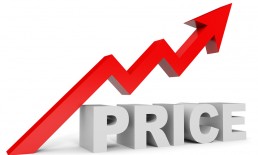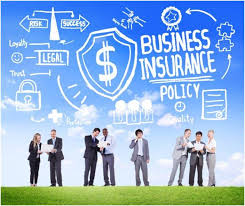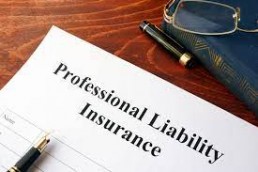Is the cost of commercial insurance rising?
Is the cost of commercial insurance rising?
Like almost everything right now, costs are rising and so is the cost of commercial insurance. If you own a business, you know all too well how high costs are getting. It is such a difficult thing to balance as you still want to stay competitive but your bottom line is getting tighter. Unfortunately, when we look at the trends for costs of commercial insurance, it does appear that commercial insurance is costing most businesses more in 2023.

What’s Driving this Rise?
Like most businesses, insurance companies have tried hard to keep costs in line with current rates. However, over the last year, the insurance industry has seen a rise in costs and this has costs losses to its expected profits. As a result, the industry is not generating the returns they would like so most insurance companies are seeking rate increases of 5% to 10% or more for some lines. However, the insurance market has a significant amount of surplus or available capital, which drives competition. While companies would like to raise prices, this competition serves as a moderating factor.
So, what can insurance buyers expect in 2023? Assuming similar exposures (payroll, property values and revenues) and a decent loss history, buyers should conservatively budget for a rate increase – the value largely dependent on the type of business one operates. The following is what you can expect for certain lines:
Property insurance
Certain properties are seeing significant increases, however. Anything remotely exposed to wildfire and flooding risk will see massive rate hikes. This affects both personal and commercial lines. Properties with wind-driven exposures are also difficult to insure. Expect flood premiums to go up significantly. Note that the replacement value of most properties has increased significantly due to inflation, so do not be surprised if your insurer insists on higher replacement cost values.
General liability insurance
This line of insurance is experiencing modest increases. However, like all lines, this can vary. Some commercial construction and life science risks may see decreases, while certain habitational and hospitality businesses have seen double digit increases.
Executive risk
This line of insurance includes directors and officers (D&O) liability, employment practices and crime coverages. In the US, the market remains competitive with 5% to 10% average rate increases expected. The exception is public D&O, which is seeing flat renewals and, in some cases, rate decreases of 10% or more.
Cyber insurance
For years, this coverage was underpriced, but now rates are going up and underwriting requirements are strict. Cyber insurance is volatile and the number of new players entering the market make it difficult to provide a general idea of what insurance buyers might expect on renewal. Based on recent experience, cyber insurance costs will likely go up substantially now that is a much sought after line of coverage for most business owners.
Professional liability insurance
This line of insurance is for your typical accountant, lawyer, architect or engineer remains in fairly good shape. There are a number of insurers competing for business and experience has been decent, but not great. Many insurers are seeking increases of 10% or more, but as mentioned above, competition is helping to soften this and most accounts are renewing with minimal rate increases.
Every business has different exposures, business practices and loss histories, all of which will affect your insurance costs. Firms that invest in loss prevention, proactive HR practices and aggressive claims management are generally looked upon more favorably by the underwriting community. The importance of risk management in controlling insurance costs cannot and should not be overlooked. In the end, while some conclusions can be made based on a macro view of the insurance industry, the best way to budget appropriately for 2023 is to have a discussion with your insurance broker.
At Leaders Insurance, we have a team of skilled brokers in the commercial insurance area. We pride ourself on the commercial insurance we offer to our clients. As a result, we have developed longstanding relationships with our clients for commercial insurance. We take the time to understand your needs and can help you as you find what is right for you. We look forward to assisting you with all of your insurance goals and requirements. Contact Us today.
Why Purchase Pollution Liability Insurance?
Why Purchase Pollution Liability Insurance?
You own a business and you want to protect it but sometimes when you are finalizing your insurance you don’t think of all the things that could happen. This is often the case with liability claims. As a business owner, you need to particularly careful about protecting yourself from getting sued as it can be a very pricey endeavour to deal with in terms of legal fees and damages. Most of the time, companies settle to minimize legal fees and this is where having the right coverage can be a very important decision when you finalize your insurance. One of the areas that is often not considered is pollution liability insurance especially if you are in a business where pollution is not top of mind. Let’s learn a bit more about pollution liability insurance through an example…

Melted Butter Spills in Canal
As noted by USA Today, a fire broke out in the butter storage room of a dairy plant in Portage, Wisconsin, on January 2nd, spreading melted butter throughout the facility and into a nearby historic canal. Crews responding to the buttery incident at the Associated Milk Producers plant deployed the same materials used in oil spills to clean up the mess.
“The spilled butter clogged storm drains and the Portage Canal, a historic waterway, with butter floating on top of the water in a 30-by-20-foot area, local officials said. No one was injured in the incident, and a hazmat team used boom absorbents used to control oil spills to clean up about 20 gallons of butter from the canal. The environmental impact from this incident has been minimal, so far, the Wisconsin Department of Natural Resources said in a statement, but officials say butter spills can have negative effects.
“They liken the impact of the butter to petroleum products,” said Karim Jaroudi, Manager, Environmental, Burns & Wilcox in Ontario. “The odor is considered a pollution event, and there could be damage to plants and animals. Anything that enters the environment that is not indigenous to it is going to be considered a pollutant and has to be remediated. When a contaminant enters a waterway, that is an even-worse-case scenario.”
While the spill was 99% contained on site, it is the sort of accident that on a larger scale could lead to thousands or even millions of dollars in loss for the company responsible, said Timothy Donnellon, Senior Broker, Environmental, Burns & Wilcox, Charleston, South Carolina. Many food companies fail to purchase Pollution Legal Liability Insurance as they may not deem their products as pollutants but if insurance coverage or this kind was covered, it would pay for these costs versus the company absorbing them.
Food Spills can be Costly
Even if a food producer is not producing something that is deemed as a “pollutant”, many of their products may have by-products that if leaked into water systems, can be very hazardous. As a result, it is important that when obtaining commercial insurance, companies consult with a skilled and educated insurance broker. A broker with this knowledge would provide guidance on areas of this kind to ensure that the company is properly covered or at least notified of the importance of this coverage before they finalize their policy.
Finding a Knowledgeable Insurance Broker
For a business owner, it is so important to develop a relationship with an insurance broker that has experience and knowledge so they can bring that to the table when you are finalizing your policy. This makes all the difference in the world. We always hope that you never have to file a claim, but at least if you do, we want to ensure you are covered for any incidents if they do come about.
At Leaders Insurance, we have a team of skilled brokers in the commercial area. If this story makes you wonder what your policy includes, we welcome your call so we can review your existing policy and ensure you have pollution liability coverage. Don’t be left without the coverage you need, when you need it most. We take the time to understand your needs and can help you as you find what is right for you. We look forward to assisting you with all of your insurance goals and requirements. Contact Us today.
Why Insurance Rates Go Up
Why Insurance Rates are Rising
As reported by Canadian Underwriter at the beginning of 2022, home insurance policyholders were expecting an average 5% rate increase in 2022.The average cost for home insurance in Ontario in 2021 was $1,342, per RatesDotCa. A 5% increase would translate into a rise of $67 per year, making the average cost $1,409 annually.
The main reasons for the 2022 increases come down to several things, including renovations, rebuilds, and climate change. Although RatesDotCa and the Insurance Bureau of Canada issue a caveat that home insurance rates are extremely difficult to predict. So, what is causing these 3 drivers to create a rise in home insurance?

Climate Change
Extreme weather caused by climate change has resulted in millions worth of insured damages, pushing up premiums. Many provinces saw extreme weather hit them and this caused a major rise in claims.
Although 2021 marked a year of many catastrophic weather events, two notable ones include the tornadoes that tore through Barrie, Ont., in July 2021, costing $100 million in insured losses. Also. flooding in B.C. in November 2021 cost more than $450 million, per IBC’s estimates.
“There was significant severe weather across the country last year and, in fact, it’s over $2 billion dollars in insured losses,” says Rob de Pruis, director of consumer and industry relations at Insurance Bureau of Canada (IBC). “That includes all kinds of events, from tornadoes in Ontario, flooding and wildfires in BC, a big hailstorm in Alberta, and another hurricane event on the east coast, as well as many others across the country.”
Renovations
With people bunkered down during the pandemic and not travelling, insurers note that more people were staying home and making improvements to their home.
However, home renovations increase the cost of rebuilding, which in turn drives premiums up. According to Statistics Canada, Canadians across the country applied for 212,523 residential alteration and improvements permits from January to November 2021.
If your replacement cost is increasing, your premiums just fall in line with replacement costs.
Rebuilds
Pandemic-induced supply chain disruptions and changes in consumer purchasing behaviour have led to rises in building material costs such as lumber, RatesDotCa said, which in turn drives up insurance rates.
Insurance rebuilds are often more expensive than the construction costs arranged through private contractors, since insurers must rebuild quickly to move the homeowner back into their home. Depending on the policy, insurers may also be paying homeowners for accommodation costs during the rebuild.
De Pruis lists inflation costs of materials, the age of your home, your postal code, and fluctuations in crime rates as other factors that affect home insurance premiums.
Insurers issue a note of caution about predicting home insurance rates.
As the article notes, since home insurance pricing is unregulated in Canada, it’s difficult to determine exactly how much home insurance premiums will rise by, but premiums are definitely on the way up.
Canadian Underwriter also reported that it is hard to predict rates. “It’s almost impossible to predict future home insurance rates, because there’s so many factors and influencing and pressures that are on premiums, and they vary across the country as well,” the article noted.
How to Save Money
Some insurers offer discounts that can help bring down premium prices, including discounts for properly installed and monitored security systems, fire alarms and claims-free discounts. Also, insurers can run a soft credit check that may lead to lower premium prices if a homeowner has good credit. Another option for people is to Increase their deductible. Normally, the higher your deductible, the lower your insurance premium would be. Policyholders should choose a deductible that they are able to pay in case of an insurance emergency. With the rising cost of living, including insurance, it’s important for us all to spot ways to save money. One way individuals and companies can save money on insurance is through group discounts. Some companies and professional organizations offer group rates for insurance. This is true if you are an alumni of a specific university or part of an association. Consumers can save by bundling home and auto insurance together with the same provider. The article highlighted that it’s important for policyholders and insurance representatives to connect and review their policy on an annual basis.
At Leaders, we pride ourselves on the relationships we have with clients. We want to help you find the right insurance for a competitive price. We always try our best to ensure that you have the right level of protection for your needs, and we survey a range of providers to find you the best rate. Contact us today to learn more and for us to provide you with a free quote and consultation for your insurance.
Why Commercial Insurance is Important for Small Business
Why Commercial Insurance is Important for Small Business
You likely have already heard a thing to two about commercial insurance, however, did you know it can be extremely important for small businesses, in particular? If you own a small business, here is some relevant information about how commercial insurance can be beneficial to you.Read on to learn more about the most common types of coverage and how they can support your day-to-day business operations and help to prevent significant risks that pose a threat to the future of your small business.

Property Insurance
Property Insurance, as the name states, refers to the coverage that protects your business property, such as the building itself, as well as other assets, such as inventory, electronics and equipment from damage related to fire or flooding, etc. This type of insurance can be suitable for a variety of businesses and definitely a major consideration for small business owners.
Liability Insurance
Liability Insurance differs from the first type of coverage, as it protects you from situations where your business may be found liable for causing damage or injury to third parties. For example, if an individual is injured on your premises or your property causes damages to the property of others, you could be found responsible.
In the even you are subject to a lawsuit related to these circumstances, this insurance helps cover costs associated with these related fees – fees which could have the ability to derail your company’s livelihood. For this reason, this coverage type is also worth obtaining as the owner of a small business.
Compensation Insurance
Additionally, if your small business employs one or more staff members, it may also be necessary to add worker’s compensation coverage to your commercial insurance policy. Should one of your employees become injured as a result of the work they do for you, they may also have grounds to file a lawsuit against your business.
Since negligence lawsuits can have the means to have sizeable financial implications for small companies, it is also important to have adequate insurance in place to coverage these types of situations, if applicable to your business.
E-commerce Insurance
Perhaps a little newer, compared to other business insurance areas, this specialized insurance coverage helps protect your online or e-commerce interests. If a part of your small business operates using online channels to sell products or provide services, for example, then having this type of insurance will also be great beneficial.
As many businesses also operate using online platforms, then having coverages designed to safeguard your online usage, such as data and personal information is also critical to ensure you are minimizing any potential cyber security risks.
In the end, having the proper insurance for your small business can often be the difference between staying in business or having to ‘close your doors’. As a result, it is highly recommended that you discuss your small business insurance needs with an insurance expert.Contact Leaders Insurance to get more insight into how you can choose the best commercial insurance for your small business, and regardless of the uncertainty associated with any potential risks to your daily operations, you can continue to see your business thrive into the future.
Business Insurance Trends 2021
Business Insurance Trends in 2021
Certainly, over the course of the recent year and a half, Canadian business owners have had to adapt and adjust to the new and ongoing realities of business operations. What is also important to note is how this reality has also been significantly reflected in their insurance coverage needs.As many experts are looking at a more positive outlook for the business world moving forward, here are some business insurance trends that are likely to continue throughout Canada as 2021 progresses.

E-Commerce Businesses
With many businesses either switching over to the e-commerce route or being established with this business model in mind, many business owners, including small businesses, will require e-commerce insurance to help offset the potential risks that can also stem from online operations.
One specific are of insurance that online retail business owners will definitely want to consider is cyber insurance. Cyber Liability Insurance, for example, can be added to an e-commerce insurance policy to protect businesses from loss of income, reputation and legal issues, that can result from data breaches and the loss of sensitive information.
Fortunately, cyber insurance can help protect businesses – large or small in a variety of ways.
Business owners are encouraged to look into which areas will concern them the most, and in turn, surround their e-commerce business with the most solid protection possible.
Flexible Working Locations
Another exemplar on the rise this year is the shift towards more frequent work from home. With many employees making this work trend more the norm in 2021, this is also likely to continue to impact insurance coverage moving forward. With employees performing their jobs in a similar manner, yet at times doing so from home, the sensitive nature of their work may require additional cyber security measures.
While network cyber security systems may already be in effect for remote work locations, this type of business insurance can help to protect companies from the unavoidable hazards associated with cyber crime, regardless of where their employees are working at the time.
Home Offices
For those employees who may be making a more permanent shift to remote working environments, in addition to having the necessary cyber security, they will also want to have protection in place to account for their physical work space and business assets.
First of all, having professional liability insurance will be beneficial should businesses be faced with financial losses associated with potential client lawsuits. These costs can be high, and this form of business insurance can greatly contribute to preserving a company’s future financial position.
Since employees may be keeping inventory and equipment at home, in order to perform their duties, then this may also require addition coverage in the form of property insurance. Should there be a need to replace expensive equipment, or should the workspace, itself be damaged, having insurance to properly cover these costs will be extremely important.
When all is said and done, having the most suitable insurance in place and by keeping apprised of the trends related to the additional areas of insurance that are worth an extra consideration, is a vital part of owning a business, especially in this day and age.To learn more, Contact Leaders Insurance to find out how we can help you identity and access the the most up-to-date and comprehensive insurance policy for your business needs this year.
The In & Outs of Commercial Insurance
The In & Outs of Commercial Insurance
Whether you own a small, medium or larger sized business, there are specific types of insurance coverage that will meet individual business needs. To learn more and to help identify the type of commercial coverage you should consider for your business, here is some more information that will give you a clearer picture of the the different types of existing commercial insurance.

What Type of Commercial Do You Need?Property Insurance
Property Insurance is a key aspect of a commercial policy. This type of insurance can cover a broad range of areas, including various potential damages to your property. In the event, there is damage done to your physical business assets, exterior property fixtures, this coverage can help with repair and replacements costs.
Damages or losses that occur as a result of fire, flooding, storms, vandalism and thefts are circumstance that are commonly covered under these plans.
Specific property items that are typically covered under the insurance policy will include, computers and other business equipment and documents, furniture and inventory, other’s property, indoor and outdoor signage, and the building premise, itself.
In the event, you may have to shut down all or partial areas of your business, having Business Interruption Insurance can be greatly beneficial as it can help you to continue to pay your bills, while also meeting payroll needs.
Do You Need Extended Coverage?
While properly insurance is a main type of insurance coverage you will want to include in your policy, there are other areas of coverage also worth some additional consideration and these typically fall under the scope of extended coverage.
Professional Liability
Professional Liability insurance can support any legal fees you may be subject to as a result of being found at fault for any professional services you have supplied. For example, this may include instances of customers claims that the work or services did not fulfil contractual agreements.
Product Liability
Also relating to customer claims, however in this case specific to the products and services themselves being faulty or problematic, this Product Liability coverage can protect you by also reimbursing expenses associated with your legal defence needs.
Cyber Insurance
Regardless of the size of your business, having cyber insurance in place is an important way of protecting your business against a range of cyber-attacks and the financial costs that can occur as a result. Some of these threats include, loss of income from online sales disruption, data loss, as well as damages affecting business reputation and legal defence expenses.
Auto Insurance
If your business involves the operation of vehicles, having commercial auto insurance is also a good idea. Similar to personal auto insurance, business auto coverage, relates to damages to vehicles related to theft and vandalism, and storm-related destruction. Commercial auto policies can help with replacement and repairs costs of your company vehicles.
Equipment Breakdown Insurance
One final type of commercial coverage also worth mentioning, is known as Equipment Breakdown Insurance. To avoid, significant loss of operations and income, this type of insurance can help with repair and replacements costs so that your business can be back up and running as soon as possible.
When all is said and done, there are many aspects of commercial insurance that you will want to consider. To learn more about the ins and outs of commercial insurance, connecting with and insurance agent can provide the most effective pathway forward.
Contact Leaders Insurance and we can help you find the most comprehensive commercial insurance coverage for your unique business needs.
Top Cyber Trends for 2021
Cyber Security 2021 (Top Trends)
Issues of cyber security have been an ongoing challenge for companies and individuals for many years now. With that being said, there certainly has been an increase in these threats in the past year, perhaps partially responsible for some of these issues occurring more readily, is the shift to more online and remote work.Whether or not your company’s security has experienced the increase in cyber attacks due to remote or in person working environments, the reality is that keeping your data private has likely become even more necessary compared to in previous years.
Here are some of the top trends in cyber security to be aware of in 2021.

Increase in Ransomware Attacks
The unwanted presence of ransom-ware attacks have been on the rise and companies are being threatened with issues that can range from frozen internal systems, stolen software and data breaches – often coming at a high financial cost.
In order to help protect these cyber weaknesses, you can to turn to products that can ensure a stronger perimeter around your networks. Cyber Security products such as SASE (secure access service edge) and XDR (extended detection and response) to mention a few are designed to support these purposes and can also be used in remote working environments.
Broadening Scope of Phishing Scams
Other major cyber-attacks that have escalated this past year, is malware and phishing scams. While these are not new occurrences, cyber thieves has definitely seemed to have expanded their scope, as they continue to look to steal confidential data through various means. These include email and social media accounts, and text messaging systems, where a link is attached, and if accessed, information and internal systems can become compromised.
That being said, text message or SMS-related phishing scams, knowns as ‘smishing’, have been more common place lately as well, and while email systems may already filter out these as spam, text messaging platforms do not typically have the same initial protections in place. With more employees working remotely, the use of cell phones and text messaging has also become a more common form of communication and as a result, can be more easily accessed by employees and businesses unknowingly.
In addition to increased employee diligence, such as not opening links from individuals or organizations you do not recognize, businesses can also protect themselves by implementing anti-virus software that requires URL/domain authentication.
The bottom line really is, that by being proactive and having these important cyber security measures in place, you will stand a better chance of being able to fend off the damaging effects of cyber attacks. Looking into the types of products and services that will be best for you is an important step in the right direction.
Growing Importance of Cyber Insurance
Furthermore, you can also elevate your own level of protection by having the right cyber insurance for your needs.
With a high volume of cyber claims typically ranging from hacking, phishing and ransomware threats, it is even more critical that you factor in this type of insurance into the management your business, whether you are working remotely or in person.
At Leaders Insurance, we want to help you protect your business. Contact us to find out more about the insurance policies we offer and how you can continue to stay on top of cyber security in 2021.
Why Do Small Business Owners Need Liability Insurance?
Why Do Small Business Owners Need Liability Insurance?
As a small business owner, the success of your business can truly depend on the explicit actions you implement on a daily basis. One such decision that is definitely worth top consideration, is having the proper business insurance.With the different types of insurance available for various business needs, one area that a small business can benefit from is having Liability Insurance. Read on to learn more about how Liability Insurance can be advantageous for your business.

The Benefits of Liability Insurance
While you may already have some insurance in place, such as commercial property insurance, commercial auto insurance or home-based business insurance, these types of policies , however will not necessarily help to protect your business from any legal concerns you may be faced with.
Since there are various types of liability scenarios you may encounter, there are in turn, specific types of liability insurance packages to help support your ongoing business needs.
Commercial General Liability (CGL) Coverage
This first type of insurance is a key liability insurance staple for any small business owner to carry. Commercial General Liability insurance protects small businesses from incidents where customers, suppliers or other individuals experience bodily injuries as a result of engaging with your business.
Additionally, CGL can also help in instances where an employee is found responsible for inflicting damage on property belonging to a third party. Ultimately, having this type of insurance in place is highly recommended for a wide range of small business owners.
Product Liability Coverage
As the name states, Product Liability Insurance can help small businesses deal with the high costs associated with any property damage or bodily harm that can occur as a result of the products that their business is manufacturing and/or selling.
If this type of service reflects your daily business operations, then this is a strong indication that you will benefit from having this type of insurance coverage.
Professional Liability Coverage
This final type of liability insurance coverage exists to protect businesses from lawsuits that could be filed against them, in the event a client encounters a financial loss as a result of any actions that are deemed wrongful on the part of the business owner.
Lawsuit claims can range from clients experiencing a deficit in income due to contractual project deadlines are not fulfilled or when a business does not meet the previously agreed upon project or service expectations and financial losses occur. When small business owners find themselves in this type of situation, this means that they could suffer huge financial losses of their own.
If you are running a business that offers services or products for a fee, then Professional Liability coverage will definitely be worth an extra consideration and help protect you from these types of outcomes.
In the end, choosing the best liability insurance coverage really does depend on the nature of your small business and the services and products you are providing.
That said, if you are currently undecided about which type of liability insurance you need, Commercial General Liability insurance can serve a wide range of small business needs, and is a great place to start.
As a small business owner, you can then discuss your needs with an insurance agent and they can help you to identify which coverage will align the most accurately with your specific business interests.
Contact Leaders Insurance for more information on small business liability insurance coverage and let us help to ensure you are fully protected in all essential areas of your business.
3 signs your small business needs commercial insurance
3 Signs your Small Business Needs Commercial Insurance
As a small business owner, you may have started out with an insurance package that at the time, had sufficiently met your needs. However, if you are expanding or altering your business in any way, then it might be time to look at discussing Commercial Insurance policy options with your insurance agent.Here are some signs to help you identify if your small business will benefit from making the move to commercial insurance.

Sign #1 - You Have Purchased New Equipment (and Inventory)
If you have recently purchased some new equipment to operate your business, then it might be a good time to consider moving to commercial insurance. If, for example, you rely on expensive items, these can range from computers to vehicles, as well as many others, then you will want to ensure your insurance adequately covers these costs, should you need to promptly replace them in order to keep your business up and running.
Another important part to this, could also be that you have expanded your range of products and services With a larger inventory than you previously had, additional commercial insurance is likely necessary to ensure you also have enough coverage to replace these items, in the event there are any major losses.
With equipment and vehicle insurance being key elements of operating your business, having this type of commercial insurance in place may be the right move for you at this time.
Sign #2 - You Have Hired Additional Employees
As a small business owner, you may have started out as being the only employee. That said, the time may have come that you now require some additional help and are ready to take on another employee. Whether you are taking on a second employee or increasing your number of employees more significantly, either way, this is an important sign that you should reevaluate your insurance.
For example, worker’s compensation insurance is a commercial insurance option that helps to ensure you have enough coverage to support all of your employees and that you are both protected.
Sign #3 - Your Revenue has Increased
Perhaps you have also experienced an increase in revenue and your business is growing in this area as well. If you are now making a substantially larger amount of money compared to when your business began, then this is also a strong indication that you will want to make an insurance adjustment.
With increased equipment and employee needs, your revenue may also be on the rise and you will want to seek out the best level of insurance coverage that matches the trajectory and evolution of your business.
Bonus Sign #4: You are Moving into a New Business Space
One additional sign that also deserves mention, is whether you have made any changes to your business space. If you have or are thinking about renovating or moving into a larger work space, perhaps even leasing or buying a property, then you will also want to contact your agent. This can be a valuable opportunity to discuss the necessary commercial insurance coverage needed for this type of expansion.
Commercial insurance can cover a variety of unique areas pertaining to small businesses. Therefore, it is important to be aware of these aspects, so that you have the peace of mind that you are fully covered.
If you are ready to expand your small business operations in any way, you can contact our experts at Leaders Insurance to find out more about commercial insurance and what is the most suitable coverage for your business needs.
In the Market for Security Services Insurance?
In the Market for Security Services Insurance?
Insurance for a security company in Canada is a specialized area of commercial insurance. Providing a quote and offering insurance considers the unique business liabilities that come along with it.

Why does a security company need insurance?
The standard commercial general liability policy that your typical retailer or business owner would have does not meet the needs of a security company as it contains a number of exclusions that are extremely problematic and also doesn’t include professional liability which is critical for a security company.
Examples of important coverage considerations for security companies include:
- The typical care, custody and control exclusion not being applied to property that is being protected
- Broadening of the personal injury extension to include coverage for false arrests, invasion of privacy and/or discrimination
- Failure to perform exclusion removed
- Intentional injury caused to others in defence of property or persons is not excluded
- Liability for loss or damage to property of others that is being protected is not excluded
Finding specialized insurance for a security services company –
- Insurance for alarm monitoring operations and call centres
- Insurance for investigate services
- Insurance for locksmiths
- Insurance for security guards including stationary, mobile and emergency response
- Insurance for armoured car companies
- Insurance for security product manufacturers
- Insurance for security system installers and/or access control professionals
- Insurance for security training facilities
- Insurance for sprinkler design and installation companies
- Insurance for event security, doormen & bouncers
How Much Is Insurance for A Security Company In Canada?
The simple answer to that is that it all depends. There are so many types of security companies across the county that insurance premiums range dramatically. The price all depends on the annual revenue and type of work being done. The best way to find out how much is insurance for your security company is to get in touch with an insurance agency today. At Leaders Insurance, we take the time to explain the various coverage options that are available to you.
Can you get insurance if you are a security guard?
If you are a security guard, you are one of many in a field that is only growing. When it comes to insurance, security guards are in a unique situation. Some security personnel may have insurance that is provided to them by their employers, while others may have to seek insurance that fully protects them in their line of work. Security guards face risks that others in the workforce do not; the very nature of their jobs puts them in dangerous situations, which could impact their insurance rates.
Insurance policies security guards may need
As a security guard you have a certain amount of professional liability. Your occupation is inherently riskier than most, since you are tasked with protecting property, a business, or people from harm. You may be static or mobile, serving as a bodyguard, or simply being a presence in a location just in case of emergency.
Whether you are purchasing your own insurance or are under an employer’s policy, as a security guard, you should make sure you are covered for various risks faced on the job. Consider insurance policies that include the following components:
- Automobile insurance
- Professional liability insurance
- Life insurance
- General liability insurance
Security Guard Insurance Coverage for Independent Contractors
If you are an independent contractor, you may have to find your own insurance in order to be financially protected while on the job.
Two important insurance policies to keep in mind as a security guard are property insurance and general liability insurance. When taking care of a building or business, property could be at risk of vandalism or burglary. General liability insurance and professional liability insurance could protect a security guard against errors in their reports as well as situations they have no control over that result in damage or injury.
- General liability insurance. This provides protection against liability that may arise over the course of employment. Guards are often asked to write down what they did and saw in comprehensive shift reports, but eyewitness accounts of accidents or even routine events can be faulty.
- Professional liability insurance. This provides coverage for situations where inaccurate advice was given, a guard was negligent in their duties, or a situation was misrepresented.
- Property insurance. This protects the area in question if a guard isn’t able to secure the site or is unable to prevent an act that causes damage to the property.
- Automobile insurance. This helps protect the vehicles a security guard may drive during the course of their job.
